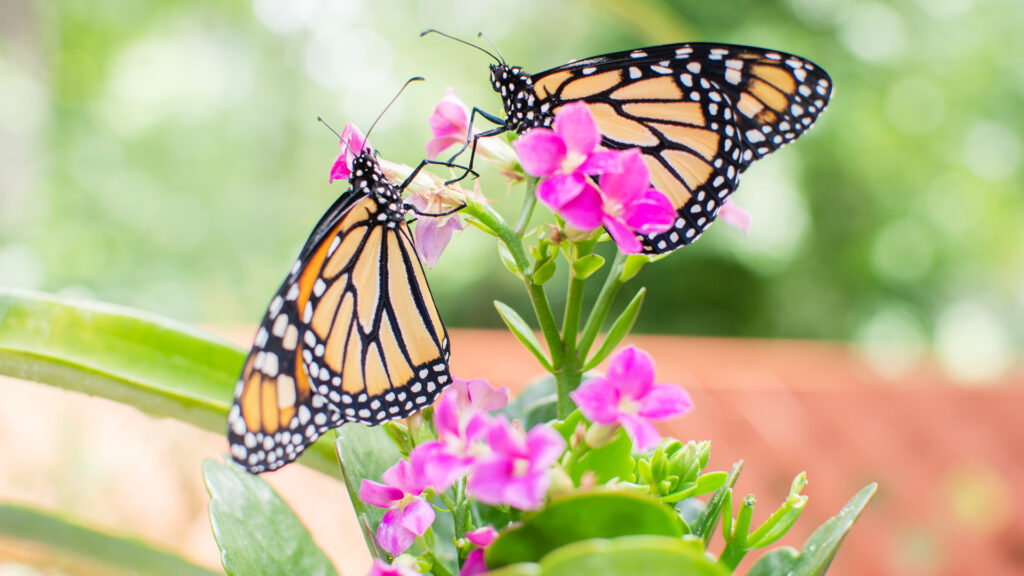By Trimmel Gomes, Florida News Connection
Monarch butterflies could soon be added to the federal Endangered Species list, with a decision expected by year’s end.
Eastern monarchs migrating through Florida experienced an 80% population decline between the 1980s and 2020.
Their western counterparts have seen an even steeper drop of 90%.
Environmental groups first petitioned to list the monarch as threatened in 2014, and the species was designated a candidate in 2020.

Rebeca Quinonez-Pinon, monarch recovery strategist and climate resilient habitats director with the National Wildlife Federation, said monarch butterflies face numerous threats.
“Well, the main threats that we have identified for the monarch butterfly are habitat loss and fragmentation of the remaining habitats,” said Quinonez-Pinon. “Climate change is at the top of the list, definitely, and the excessive use of pesticides.”
She described monarch butterflies as a “canary in the coal mine” for pollinators, and Florida’s ecosystem — a warning sign that more action is needed to protect the environment.
Several bumblebee species in the state, such as the Southern Plains bumblebee, also face similar threats — with a dozen species currently candidates for protection under the Endangered Species Act.
Florida home gardeners can make a difference for monarch butterfly populations, by planting native milkweed and goldenrod — which are crucial for the species’ survival.
Milkweed is the sole plant monarch caterpillars can eat and depend on for survival.
However, Mary Phillips — head of native plant habitat strategy and gardening programs with the federation — cautioned that some common mistakes can hinder efforts to help monarchs thrive.
“We’ve seen studies where caterpillars are drawn to newer, younger stocks of milkweed,” said Phillips. “That will help you continue that caterpillar cultivation and don’t worry if you see the various predators. There’s also a milkweed bug that sometimes goes on these plants. People get nervous about that. It’s OK, it’s natural.”
She noted that using garden or systemic pesticides can harm monarchs and should be avoided.
In Florida, efforts are underway to raise awareness about reducing pesticide use to protect pollinators like bees and butterflies, which are essential to the state’s ecosystems.
Florida News Connection is a bureau of the Public News Service. The National Wildlife Federation contributes to their fund for reporting on climate change/air quality, endangered species and wildlife, energy policy and water. Banner photo: A monarch butterfly perched on a milkweed flower (iStock image).
Sign up for The Invading Sea newsletter by visiting here. To support The Invading Sea, click here to make a donation. If you are interested in submitting an opinion piece to The Invading Sea, email Editor Nathan Crabbe at ncrabbe@fau.edu.



